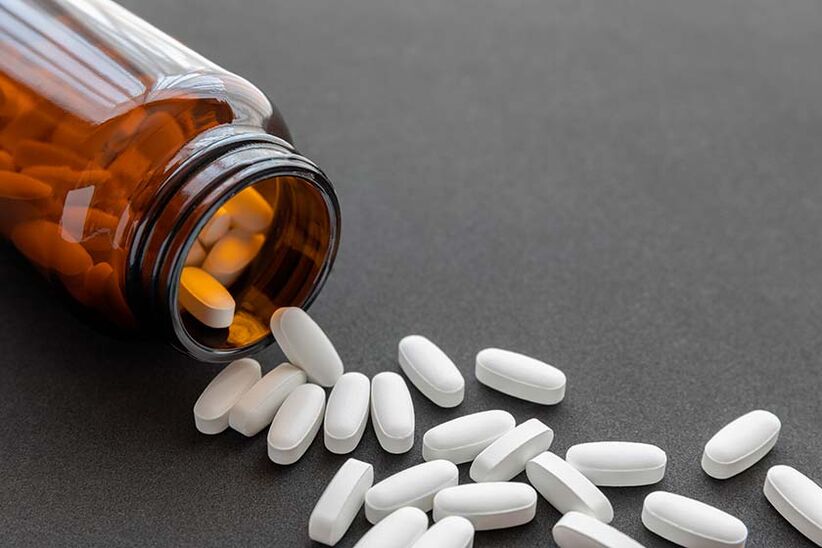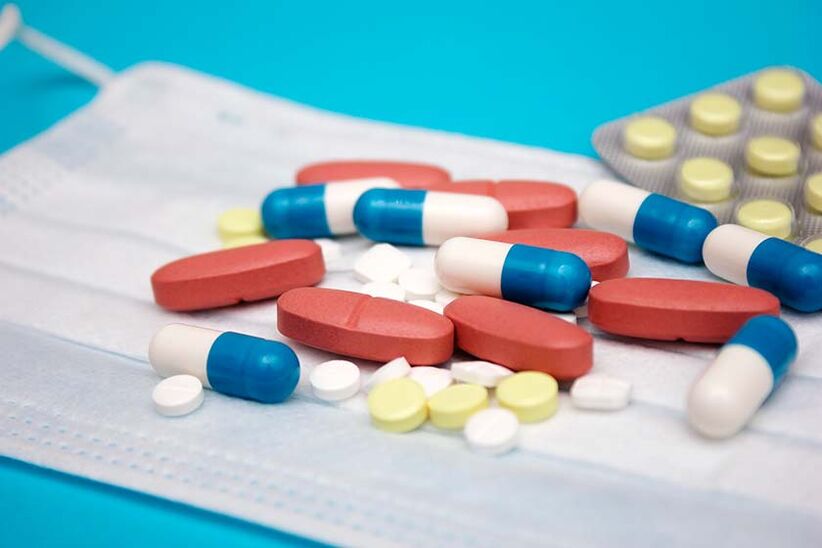Alcohol does not agree whether alcohol alcohol is suitable for antibacterial drugs.Some experts do not cause the deterioration of health by taking alcohol after completing the course of treatment.Among the doctors there are more competitors to this approach.
During the treatment and after drinking drink: which experts say
The content of antibacterial medications includes synthetic substances that destroy viral microorganisms.Ordinary drugs are determined when it is useless.On the one hand, antibacterial drugs help people treat very serious diseases.On the other hand, the medication of this group has high toxicity.It is not the reason why the doctors recommend drinking the hepatoprotector during treatment to catch the liver.
After antibiotics, alcohol significantly increases the burden on the body.The question is open, whether the use of alcohol during antibiotic treatment.
Experts define a few reasons why you should refuse to drink during therapy:
- Alcohol levels of drug admission effect.Antibiotic active substances have interact with microorganism proteins, affect them, and change the structure.Alcohol molecules change proteins, weaken chemical bonds.
- The liver is experiencing heavy loads during treatment with any medications.If a person drinks, it creates additional stress for the body.As a result, it is also developing toxic hepatitis, intrahepatic cholestasis, the flow of bile is difficult, the inflammatory process develops in refreshing channels and liver.
- The interaction of alcohol with antibiotics can cause a good deterioration.Disulfiram-Agherlike reactions can cause fire, nausea, headache, in the worst condition, comma and death.The drugs of this group are used in the treatment of alcoholism.
In alcoholic beverages, the intestines have substances that help drugs to absorb very rapidly and make it even more rapidly.
How often can you drink alcohol from the departure of antibiotics?The term depends on the drug and duration of the therapy course.Some types of antifungal drugs, as well as penicillin, helomycin are in small doses to strong drinks.It is recommended to avoid unpleasant results or consult them completely or consult with the doctor.Must be in exceptional cases to combine alcohol and antibacterial medications.
3-5 days after antibiotics, doctors allow alcohol drinking.This time it is enough to eliminate the body of the toxic substances and can give a decent response to alcohol.If the patient suffers from chronic forms of diseases, and many times should be treated with antibacterial drugs 2-4 weeks without alcohol.

Alcohol after antibiotics: Prospects and results
The idea that the alcohol does not necessarily match any drugs does not have clinically confirmed facts.This is a myth.There are different types of therapy, doctors recommend excluding alcohol.The results of the use will not necessarily be fatal, but the prospects of development of possible complications are excellent.
The table below shows examples of negative reactions from the body to alcohol.It should be noted that an unexpected situation can completely develop to take "harmless" medication.After antibiotics, you may have a doctor before taking a medicine to know you can drink alcohol.
| Types of medications | The result of a combination with alcohol |
| Aspirin | Stomach ulcer |
| Caffeine, Ephedrin. | Hypertensive crisis |
| Diuretic, hypnotic. | A sharp decline in pressure |
| Paracetamol | Toxic liver injury |
| Insulin, lowers of sugar levels. | Sugar in the blood, coma |
| Neuroleptics, painkillers, anti -inflamational | Poisoning. |
| Transgizers, sleeping pills | Intoxication, coma |
| Sulfamiliids | Impact, lack of intolerance to individual substances. |
| Niprolcerin, antihistines | Allergy, growing pain |
Preparations for the CEPHocetane group slow down the chemical reaction of the split of alcoholic molecules.As a result, a human being lives in all the signs of poisoning: dizziness, vomiting, headache, shortness of breath.Disulphith is higher than an anti-anti-anti-anti-anti-anti-anti-anti-anti-anti-anti-anti-anti-anti-anti-anti-anti-anti-anti-anti-anti-anti-anti-anti-anti-anti-anti-anti-anti-anti-anti-anti-anti-anti-anti-anti-anti-anti-anti-anti-anti-anti-anti-anti-anti-anti-anti-anti-anti-anti-anti-anti-anti-anti-anti-anti-anti-anti-antiThe smallest dose of alcohol is very bad.The minimum waiver of strong drinks is a week.
Other medications, weak alcohol - along with the metronidozole.After this antibiotic, alcohol is causing intoxions.However, this decision is not scientifically confirmed.In 2003, medical scientists had experienced.During the treatment of Finnish men from a small group by metronisol, he wanted to drink alcohol regularly and shared the result.5 days later than the antibiotics began to buy, there was no adverse effect on alcohol.The research was stressed that the organizers should not unite strong drinks with metronidazole to prevent negative results.
There are several more drug groups that cannot be combined with alcohol:
- Tineasole;
- Linezolidide;
- Eritromycin;
- Sodium thiosulfat;
- Metadoxin;
- Cyanamide;
- Calcium carbimide;
- Negative;
- Lithium nicotinate;
- Naltexon;
- Dimerkaprol;
- Nalmefen.
Doctors immediately warn patients on the threat of danger and antibacterial medications with alcohol.
The question is how much alcohol is possible after the interests of the antibiotics are interested in many citizens.I would like to use strong drinks without fear.These fears are not in vain.
The result of a combination with a drink:
- Passage of the disease to a chronic form.Microorganisms are resistant to a particular substance, the effect of therapy disappears.The treatment process is postponed.
- Deterioration of blood indicators.Inclusion in clotting leads to the development of cardiovascular pathologies.The risk of strokes or heart attack is repeatedly increasing.
- The appearance of allergic reactions.A light attack is suspended by antihistamine drugs.Intense shape develops anaphylactic shock and quincke edema.
Learn how you can drink alcohol after antibiotics, you can consult a doctor.
Appropriate drugs
Doctors allow a combination of strong beverages with certain types of antibacterial drugs."Safe" list of antibiotics:
- Cefalosporines;
- Penisil's preparations;
- Macrolides.
A patient who takes a drug based on penicilline should refrain from drinking 4-5 hours from the end of the course.During this time, the treatment of the medication and decided.The rotten products are excluded through the secretintation system.
Scientific approach
The researchers conducted a survey among the British population.The 300 patients believe that more than 80% of the clinic affects the effects of drinking drugs, 71% fear the results of such a combination.
The truth is that the biggest threat is to resist the drug.Microorganisms are durable when there is a system without a system.The patient, who is drunk, is afraid of the results, so it refuses to continue the course of treatment.
Why can't you drink alcohol during treatment with antibacterial drugs?With serious medications, systematic abuses can lead to malfunctions in the work of the bodies.Systematic drink makes immunity worse, so the risk of developing various pathologies is growing.

Body Recovery: Recommendations
How long does it take after getting alcohol to restore after an antibiotic?What is the deadline to cultivate a certain medication, the doctor can say.Depending on the type of antibacterial drug, this period may extend a few days.An important criterion is the course of the course.The longer the treatment needs so much time for rehabilitation.
Doctors do not allow alcohol to drink in several cases after antibiotics:
- Having the diseases that occurred in a chronic form that encounters the liver with a poisonous download.
- The same time that takes the other drug.In this case, the recovery period is postponed to 6 months.
Experts say: After the course of antibiotics, it takes 1 year to complete the body.In this case, a person significantly increases the risk of cold, flu and other infectious diseases.
The guts live a large load during medication.Digestion is broken, metabolism is slow down, vitamins are weak, allergic reactions are exacerbated.
Experts agree to drink alcohol after antibiotics in a few weeks after the suspension of therapy.In some cases, it is recommended to reduce the use of a minimized drink.
You can help your body normal with the probiotic course.They are rich in bifido and lactobacilli, vitamins, amino acids, enzymes.Probiotics drink during or after the treatment for 2-3 weeks.
Benefits of the product:
- reduction of toxic cargo in the liver and kidneys;
- strengthen immunity;
- Restoration of the balance of the intestinal microflora (local immunity);
- normalization of the digestive process;
- to prevent toxins and allergens;
- To improve the assimilation of vitamins.
When the course of treatment with antibiotics is broken, the risk of resistance is growing.
After antibiotics alcohol: After how much alcohol you can
The time of secreting of certain antibiotics is individual.The blood system and ships were released from aminoogenkosides in 3 hours.Failed medications located inside the liquid, leaving the body in 2 weeks.The uncontrolled use of strong beverages before this period can cause a deaf.
If the use of drugs has been repeatedly, doctors recommend waiting for strong drinks.This applies to all medicinal groups.After the same day or after treatment, you can't drink alcohol after antibiotics.
Drinks related to the category of light alcohol (beer, wine) are allowed to drink 3-5 days after the end of treatment.It is necessary to postpone with a stronger alcohol.Doctors advise you to wait 10-12 days.Causing negative consequences until the patient's death that does not want to follow.























